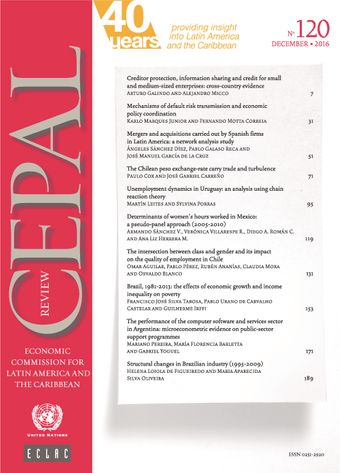-
Unemployment dynamics in Uruguay: An analysis using chain reaction theory
- Source: CEPAL Review, Volume 2016, Issue 120, Dec 2016, p. 95 - 117
- Spanish
-
- 01 May 2017
Abstract
This article analyses unemployment dynamics in Uruguay within the framework of chain reaction theory and offers evidence to account for the remarkable drop in unemployment over recent years. It confirms the impact of exogenous variables on the long-run trajectory of unemployment and rules out the notion that its long-run level gravitates around an equilibrium value. It identifies inertia processes in labour supply and demand and in wages, whose mutual interactions mean that shocks have persistent effects on unemployment. There are also complementary spillover effects that influence the magnitude and duration of the effects of shocks. Lastly, the article emphasizes that growth in the capital stock and capital productivity accounts for some of the substantial decline in unemployment in Uruguay since 2003.





